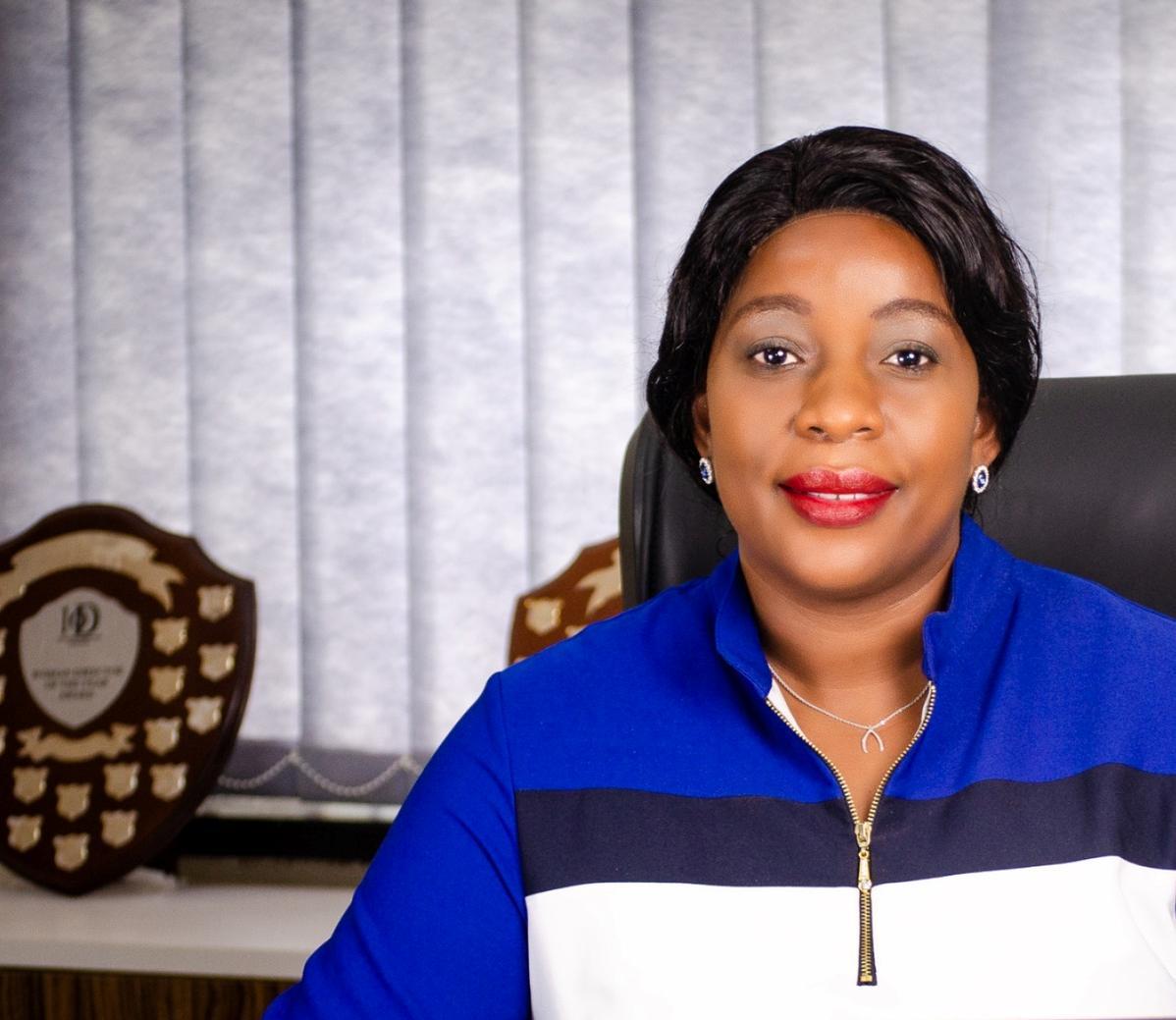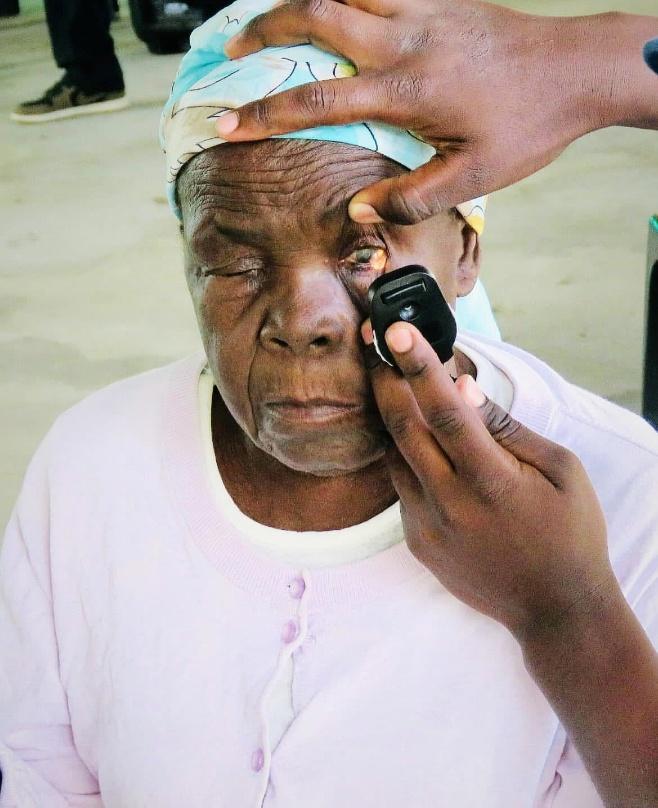
6 minute read
Disability inclusion advocate, author, and changemaker : Deborah Tigere
Deborah Tigere is a distinguished Zimbabwean leader, humanitarian, and disability inclusion advocate whose work continues to reshape the narrative around persons with disabilities in Zimbabwe and beyond.
As the Executive Director of Vision Ability Zimbabwe (VAZ),
Deborah leads efforts to promote dignity, equality, and respect for people with disabilities, empowering communities and influencing inclusive development policies
With over a decade of experience managing impactful development and humanitarian initiatives, including a notable tenure as Country Director for Christian Blind Mission (CBM) Zimbabwe,
Deborah has earned widespread recognition for her visionary leadership.
Her dedication has been honored through prestigious accolades such as the Woman Director of the Year and Director of the Year awards from the Institute of Directors Zimbabwe (IODZ), alongside the Outstanding Country Director Award from the Zimbabwe CEO’s Network.
Beyond her executive roles, Deborah is a prolific writer and thought leader, contributing insightful articles to prominent Zimbabwean media outlets on critical issues ranging from eye health access and digital inclusion for women with disabilities to combating poverty’s intersection with disability
Her academic contributions include co-authoring research published in the African Journal of Disability, further solidifying her commitment to evidence-based advocacy
Deborah’s influence extends to the continental stage, where she represents Zimbabwe in the Community-Based Rehabilitation Africa Network, facilitating knowledge exchange on inclusive development across Africa
Additionally, she is an author and life coach, offering practical leadership guidance through her book, Leadership Coloration, which addresses the unique challenges and opportunities for leaders in Zimbabwe
This feature interview delves into Deborah Tigere’s inspiring journey, her strategic vision for disability inclusion, and her reflections on leadership and social transformation
Readers will gain valuable insights from a leader whose work embodies resilience, empowerment, and a steadfast commitment to a more inclusive society.
IM: When was Vision Ability Zimbabwe established?
DT: Vision Ability Zimbabwe (VAZ) is a Disability Inclusive Development Organization established in 2023
IM: What has been the inspiration for you to start VAZ?
DT: The inspiration to establish VAZ stems from personal conviction and the desire to address the barriers associated with disability inclusion
Over time, I have witnessed how people with disabilities are excluded from society, underserved, or underrepresented
Reality stirred the desire to establish an organization that would amplify voices, challenge stereotypes, and empower people with disabilities to participate in mainstream development

IM: What are the key fundamentals of your organization about creating a balance between people with disabilities and those without disabilities?
An inclusive mindset is a key principle; disability is part of diversity, and society should focus on the abilities and strengths rather than the disability. Your environments (physical, digital, educational, and economic) should be accessible to all to the greatest extent possible
People with disabilities must be visible in leadership, policy-making making and decision-making platforms
It is essential to promote programs that raise awareness and educate communities on disability rights, inclusion, and diversity to address stigma and discrimination
The meaningful participation of people with disabilities in society remains central in achieving disability inclusion.
Every individual should be treated with respect and dignity, regardless of ability.
IM: As the Executive Director and Founder of Vision Ability Zimbabwe, what can you say have been your most memorable experiences?
I have had several memorable experiences, to name a few: a young farmer from Mhondoro district was blind and referred to VAZ.
At first, I thought he was blind due to either glaucoma or diabetic retinopathy, but after the assessment, it turned out to be cataract, a reversible eye condition.
The young man underwent cataract surgery, and his eyesight was restored. Another memorable experience was the development and launch of the National Assistive Technology Strategy for Zimbabwe (2024 – 2025).
Considering the challenges associated with accessing assistive technology by people with disabilities, the strategy will promote access and ensure that people in need of assistive devices receive them regardless of their economic status.
IM: Can you briefly tell us about your journey leading to the conception of Vision Ability Zimbabwe? (Highlight all the organizations that have assisted in growing VAZ as an organization)
After working for an international disability organization for over a decade, I capitalized on the experience, learning, and relationships to establish VAZ
I received encouragement from other organizations working in the disability sector
The ministry and departments responsible for registering private voluntary organizations (PVOs) guided throughout the process
One of my biggest hurdles was establishing a new organization without funding or resources, hence I decided to finance the establishment with my limited resources
I started engaging organizations of people with disabilities (OPDs) and people with disabilities to listen to their experiences and needs to design relevant programs.
My participation in forums discussing disability issues provided a platform for me to advance the VAZ vision and mission
My participation in forums discussing disability issues provided a platform for me to advance the VAZ vision and mission
What was previously a burden turned out to be a clear vision.
We remain grateful to our donors and partners..
IM: To date, how many people has VAZ managed to assist? (Highlight the remote areas that VAZ has assisted) ?
To date, VAZ has indirectly reached over 60,000 people through key messages and awareness. 3500 adults and children have benefited through the eye health, inclusive education,n and rehabilitation initiatives
VAZ has other initiatives that include Disability Inclusive Disaster Risk Reduction and Humanitarian Action, where we hope to partner with humanitarian organizations
In addition, VAZ supports organizations through training to make their programs and services inclusive of people with disabilities
We aim to extend our support to the most vulnerable and hardest-to-reach communities
VAZ has also reached the rural communities of Masvingo and Manicaland provinces
IM: What drives you as a female entrepreneur to continue on this path?
DT: I am driven by a sense of purpose to challenge inequality, address discrimination, and create a society where people with disabilities are empowered and respected.
Fueled by my experience and resilience, I harness innovation and advocacy to influence systemic change.

I believe it is possible to achieve an inclusive society where no one is left behind, regardless of their abilities.
I am forging a legacy of inclusion, proving that when women lead with passion and vision, no barrier is insurmountable. better myself for that eventual season.
IM: How has the government assisted you in making sure that VAZ reaches its maximum capacity about meeting the needs of people with disabilities, particularly women and children living in marginalized societies?
DT: As a Private Voluntary Organization, the role of VAZ is to complement the efforts of the government. In doing so, the partnerships with the relevant ministries have paved the way for effective collaboration.
It is important to appreciate the structures, infrastructure, human resources, and effort that the government is already making to promote an inclusive society.
In addition, policies such as the National Disability Policy provide a road map for partners like VAZ to address the needs of people with disabilities in Zimbabwe.
IM: What words of inspiration do you want to offer our readers?
DT: Every barrier you overcome paves the way for others to follow. Real change happens when we step into the communities, address the needs, and lead with compassion











